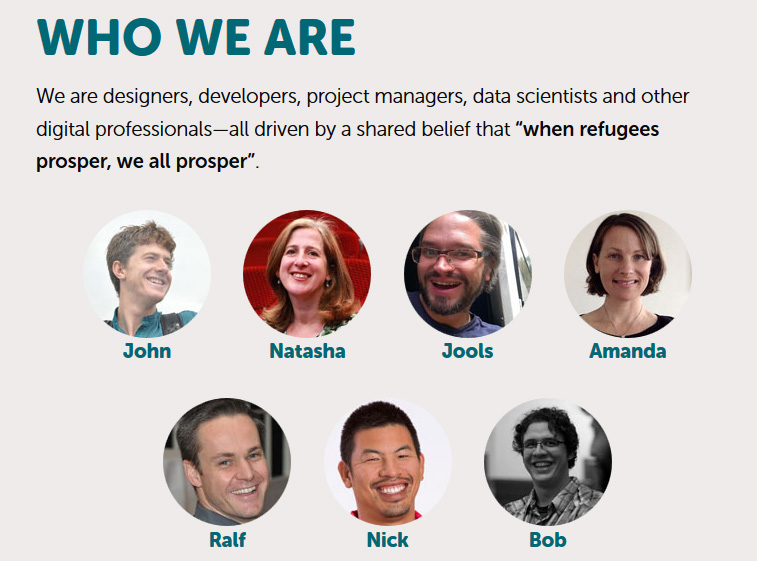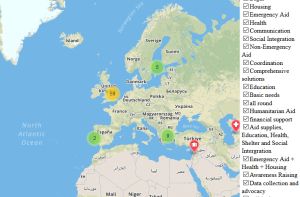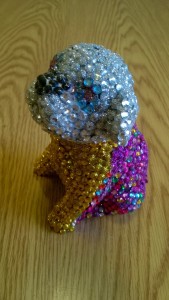
Maybe it’s just encroaching middle age, but for some time I have felt this nagging pull to do something more worthwhile and meaningful. To work on a project which genuinely helps people in need and makes a difference.
Don’t get me wrong, I really enjoy copywriting, travel writing, blogging and writing about places and music I’m passionate about, which is mainly how I earn my living these days.
I consider myself very fortunate to have been able to carve that fairly creative path and somehow eek a living from it too.
I love meeting interesting, creative people doing interesting things, whose work and projects make life more enjoyable and worthwhile.
But equally there’s this little voice dinging away in the back of my head…
The voice (and of course he’s just another manifestation of the dreaded ‘inner critic’ who frequently holds court in my consciousness, but that’s by the by) tells me that much of the work I do is, to quote the words of the great Graham Greene, ‘shallow, tinkling, vain.’
Moving Towards Meaning
But last year I got involved with several projects which saw me finally dedicating some time towards some rather more meaningful work.
Like many people I felt stunned and almost paralysed by the events unravelling in Europe last summer as millions of people were forced to flee their homes in search of refuge.
And yes, like many others I was affected by the image of toddler Aylan Kurdi, washed up dead on the shores of Turkey.
I also felt uneasy and outraged by British media reports talking in terms of ‘hordes’ and ‘swarms’ of ‘migrants’ (another loaded word) setting their sights on our coastal borders.
Language is a powerful thing, especially when wielded by major media outlets and the obvious political agendas they often represent.
Responding to the Refugee Crisis
So when I spied John Ellison’s call-out on Wired Sussex last December for ‘people to help solve the refugee crisis in Europe’ it felt like a fated moment.
John is an American entrepreneur, web designer and user experience supremo based here in Brighton.
He moved here from Colorado last summer to work at leading web design firm ClearLeft. Then the refugee crisis hit the headlines in earnest, which prompted him to change course…
John’s Story
John and his wife Sophie felt so moved by it, they decided to dedicate the next chapter of their lives to the crisis. They set up the Prosper Community (originally simply called ‘Solve the Refugee Crisis’), after they tried to take in a refugee in their house and found out just how many challenges are involved with responding to Europe’s growing refugee crisis – and how stretched many of the non-government and charity orgs are.
Generally these hardworking bodies are so busy fire fighting and attending to basic human needs in such desperate circumstances that they’re unable to dedicate as much resource to developing the useful online resources needed to help refugees on their perilous journeys, including thriving in their new host communities.
While the needs of refugees are usually more immediate, it’s worth considering the important role of technology too – and the simple fact that an internet-enabled smartphone is among their most essential tools for survival.
My Role
I got involved (initially as an unpaid volunteer, but from January on a 3 month, freelance contract basis) to help this nascent, inspiring organisation draft a basic communications strategy, get up and running on social media, crowdsource practical ideas, gather feedback and establish a regular blog.
I also fed into their evolving brand, helped run local meetings, collaborated with a ‘distributed team’ of colleagues across the globe, and generally helped to get their message out through a variety of ways and channels.
In the process I learned to get to grips with a number of new (to me) technology tools, such as messaging app and supposed ’email killer’ Slack, handy free task board Trello and the clean, markdown-based blogging platform Ghost.
Branding Prosper
The name we finally hit upon was Prosper, as that was the active verb that best reflected the key, overarching goal of the project, ‘to help refugees in Europe prosper.’
While this mission is clearly humanitarian in nature, our collective responsibility towards the human beings in need and with whom we share a planet, it’s also a pragmatic response to the crisis.
Who knows when we could be pitched in their shoes – and if we don’t act then what does that say about us and the legacy are we leaving?
Equally, failing to help those fleeing war, genocide and terror could well leave some vulnerable to ‘radicalisation’ and the ramifications that brings.
As John put it, ‘if refugees prosper, we all prosper.’
The Prosper Plan
The way that we aimed to tackle some of the crisis’ tech challenges was through using talented, committed people with design and technology skills (over 80 volunteers have signed up and worked on the project so far) to build websites and other digital infrastructure to help coordinate existing refugee projects in Europe.
And there are many project, at all levels, across the continent.
Refugee Projects
In fact Prosper’s first major project was named Refugee Projects.
This website was designed and built in a matter of weeks with a solid, searchable beta site using a user-friendly map interface.

It was established by a crack tech team of mainly volunteers, in different locations working in their own time, which makes it all the more remarkable.
What is Refugee Projects and what does it do?
Refugee Projects now details nearly 2,500 vetted, active projects of all shapes and sizes across Europe.
It covers everything, from emergency aid and shelter for refugees in the Calais and Dunkirk camps, to cross-cultural educational projects, translation apps and community kitchens, and much more besides.
It’s primarily aimed at volunteers and those working in the field, as well as those who wish to donate and otherwise support projects of their choosing.
The site helps them see at a glance (or a quick search) who’s doing what and where, and how they can then get involved.
Of course I should say that it’s not the only project out there which aims to connect people wanting to donate time, money and effort to the crisis.
John drew some inspiration from other, like-minded initiatives in Europe, like Techfugees, Lale, Metacollect and Info Compass.
But still, as far as I know, this is the first website which comprehensively and simply documents all projects on our radar, with a particular focus on helping volunteers.
What Next?
The site continues to be refined with new projects and refugee crisis responses being added all the time.
If you’re involved in one yourself, please do check and see if yours is listed. If it’s not, you can always add it by completing a simple form on the site.
You can read about the site’s full design process and evolution in this immersive post from John.
There are some exciting plans and partnerships in the works soon, so please do follow along:
My contract is coming to an end shortly, but I plan to continue to contribute on a voluntary basis. If you want to know more, why not read my post on the Prosper blog?
Museum Mentors
The second meaningful project I’ve worked on recently came as a result of my work as Blogger in Residence for the Royal Pavilion and Brighton Museums last year.
Through this contract, I was introduced to the Brighton Museum Mentors groups. These two groups, ran weekly by Debbie Bennett and her fab team of art assistants, work with people who are officially recognised as ‘vulnerable adults.’
Generally these people face various personal challenges, such as mental health issues, learning difficulties and social isolation.
The groups help them to create art and craft projects – sometimes, but not always, inspired by the museum’s own collections and exhibitions – learn a variety of art techniques, express themselves, build confidence and generally have a supportive, social fixture outside of their homes which they can rely on.
I met both weekly groups and am working with them to create a basic online gallery space to showcase their artworks. More news on that soon.
A Man with Dogged Determination!

One of Ave’s Bulldog Collectibles from www.collectibulldogs.com
One member of the groups I met is a chap called Ave. His story is amazing. He has amassed a huge personal collection of collectible bulldogs of all types, from ceramics and silverware to art prints, books and much more, which he showcases through his website and blog CollectiBulldogs – an inspired name I’m sure you’ll agree!
He set this up initially to support his daughter and help put her through university. The collection is effectively his daughter’s ‘nestegg’ now, a way that he can ensure he provides for her and her future, despite battling various health problems.
Nowadays it’s also a space where he can show off his collection and the many unusual items within it, help other collectors network and make trades, and learn more about some of the more specialist collecting areas.
He’s embraced social media full on, building up a significant following on sites like facebook, twitter, and Instagram, and blogging regularly while teaching himself SEO.
And he writes with great passion and knowledge too, in a nice, friendly tone which clearly builds trust among his readers and fellow collectors. What an inspiring man he is!
I’m working with him to help him use his social media presence effectively and fine tune certain aspects of his website, so look out for updates on that.
Art Therapy
Mental health is a subject I’m very interested in for many reasons. I’ve had my own (fairly minor) brushes with it over the years, and I know a number of people closely who have been affected by it too, at some point in their lives.
My mum has struggled with her mental health for most of her adult life. She used to go to a similar art group in Bromley, being a keen and talented painter herself, and I think that going to this group certainly helped her at various points in her life.
Joining the Dots: Making Connections
For me, as with writing of all kinds and all forms of creative expression, it’s all about the connections you can forge with people, both virtually and in real life.
That’s what really makes the difference to me. And when the two neatly dovetail together and I somehow earn part of my living through this, well, it’s especially pleasing.
I hope this doesn’t sound too indulgent, but it really does feel so great to be working on projects like these that are worthwhile and make an impact, beyond simply lining some company’s pockets or indeed my own.
It’s one of the many reasons why, 6 years in, I still love freelancing, despite its occasional pressures and difficulties. You just never know what interesting work or project is going to crop up next!
I am aware that this is a longer, and slightly more personal, post than those I usually do on this site, so thank you for bearing with me, for reading this far in and for taking an interest in these words and work.
How about you, what are you working on these days that really motivates you to jump out of the bed in the morning?